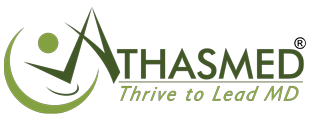 Continually building a capacity to meet challenges and bounce back from adversity strengthens your ability as a physician to thrive and succeed personally and professionally. Although, some individuals may possess certain elements that enable them to be more resilient than others, resilience is not limited to a personality trait only possessed by the privileged few. Neither is resilience about developing a “grin and bear it” approach to difficult situations. Resilience is about thriving, not just surviving. Growing resilience is a process that can be learnt and expanded all through life.
Continually building a capacity to meet challenges and bounce back from adversity strengthens your ability as a physician to thrive and succeed personally and professionally. Although, some individuals may possess certain elements that enable them to be more resilient than others, resilience is not limited to a personality trait only possessed by the privileged few. Neither is resilience about developing a “grin and bear it” approach to difficult situations. Resilience is about thriving, not just surviving. Growing resilience is a process that can be learnt and expanded all through life.
The resilience of physicians is continually being put to the test. Medical education, residency training and practicing medicine are enormously demanding. In addition, physicians are subject to the usual personal challenges that face all individuals as they go through life. On a regular basis they put themselves on the front line of challenging situations for their patients. In addition, they now have to contend with the demands of administrators, RVU’s, EMR’s, etc. It is not surprising that at times this can feel overwhelming and the capacity to bounce back feels limited and strained. However, by taking concrete and creative steps to further strengthen resilience physicians not only help themselves counteract burnout, but open the door to exploring new and creative career and leadership opportunities.
Key Steps towards Resilience
First and foremost is a decision to commit to further developing resilience for the purpose of creating a more vibrant and fulfilling life, not just for the purpose of struggling through another grueling day. Without such a commitment, the ability to truly become more resilient will not be achievable. Strategies for building resilience include:
- Cultivating mindfulness and self-compassion
- Building a strong and meaningful personal mission statement that is built on vision, core values, strengths.
- Understanding limiting personal beliefs and having tools to overcome them.
- Discovering ways to build joy and realistic optimism.
- Developing awareness of the impact that your emotions have on you and learning ways to manage them.
- Finding tools to handle difficult conversations.
- Learning how to keep sight of the big picture and be a flexible, creative thinker.
